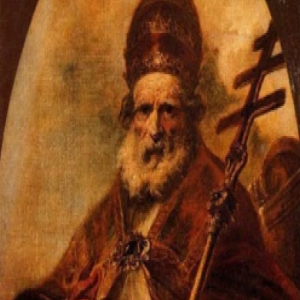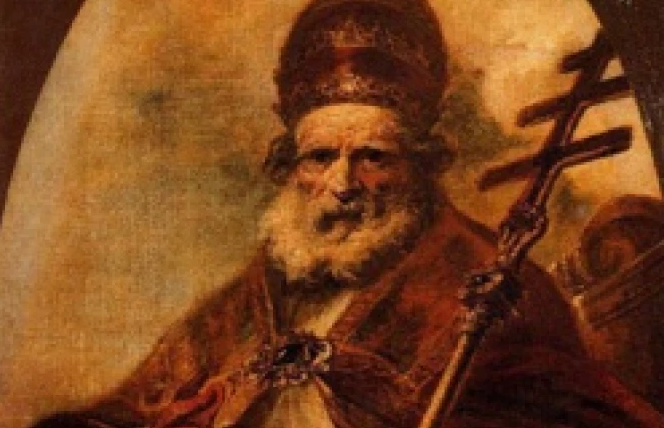
.jpg) Sacaria Joseph
Sacaria Joseph

A newly elected pope's choice of name carries profound significance. It serves as his first message to the world and offers insight into his vision for the Church. By selecting a particular name, the Pope consciously aligns himself with a specific historical papal legacy while signalling the priorities and trajectory of his papacy.
Traditionally, popes have chosen names with historical precedent, thus identifying with the leadership style, theological focus, spiritual character, and apostolic priorities of their predecessors. This practice fosters a sense of continuity within the Church and links each new pontificate to the rich and enduring legacy of Catholic tradition.
Occasionally, however, popes have broken with convention by choosing names associated with saints rather than previous popes. Pope Francis, for instance, took his name from St Francis of Assisi — emphasising simplicity, peace, and care for creation. Such departures often reflect a desire to highlight particular dimensions of Church teaching or to chart a new course in response to contemporary needs.
Ultimately, whether rooted in papal history or inspired by saintly example, a pope's chosen name serves as a symbolic framework for understanding his leadership and the challenges he intends to address.
Upon his election as the 267th Pope, the 69-year-old Cardinal Robert Francis Prevost assumed the name Leo XIV, placing himself in continuity with a distinguished line of thirteen earlier Leos. His choice of 'Leo' evokes a premeditated connection to two of the most influential pontiffs in Church history: Leo I (Leo the Great), known for his theological brilliance, defence of papal authority, and diplomatic engagement with the leaders of the world, and Leo XIII, renowned for his intellectual rigor, social teaching, and engagement with modernity.
In his inaugural address to the College of Cardinals, Pope Leo XIV said, "I chose to take the name Leo XIV. There are different reasons for this, but mainly because Pope Leo XIII in his historic Encyclical Rerum Novarum addressed the social question in the context of the first great industrial revolution. In our own day, the Church offers to everyone the treasury of her social teaching in response to another industrial revolution and to developments in the field of artificial intelligence that pose new challenges for the defence of human dignity, justice and labour."
Therefore, more than a tribute, the name 'Leo' signals a papacy rooted in doctrinal clarity, social responsibility, and pastoral concern, informed by the profound legacies of his namesakes.
To grasp the deeper significance of Pope Leo XIV's name and the potential trajectory of his papacy, we must revisit the enduring legacies of Leo I and Leo XIII, whose influence continues to shape the Catholic Church's mission in the modern world.
Pope Leo I occupied the throne of St Peter from 440 to 461 AD, during a time of intense theological controversy, political instability, and external threats to the Roman Empire. Through his theological clarity, diplomatic acumen, and firm assertion of papal authority, Leo guided the early Church through major doctrinal and imperial challenges, earning him the rare and enduring title "the Great." He remains one of only three popes (the other two being Gregory I and Nicholas I) in history to be honoured with this title and was later declared a Doctor of the Church for his lasting theological and pastoral contributions.
During the Christological crisis sparked by Monophysitism — a doctrine claiming that Jesus Christ possessed only one nature, divine — Leo authored the Tome of Leo, a historic theological letter that played a decisive role in resolving the controversy. The Council of Chalcedon in 451 adopted Leo's Christological formulation, affirming Jesus Christ's two distinct natures — divine and human — united in one person without confusion, change, division, or separation. The Council's endorsement established this as a cornerstone of orthodox Christian doctrine, safeguarding the Church's theological unity.
When Leo ascended to the papacy, the office lacked a clearly defined or centralised role within the broader Church. Drawing upon the Petrine doctrine found in the Gospel according to Matthew (Mt 16:18–19), Leo asserted that Christ's authority given to St Peter had been transmitted to his successors, the Bishops of Rome. He worked to clarify and strengthen both the theological and administrative authority of the Roman Pontiff, advancing the concept of the Pope's universal jurisdiction over the entire Church. Leo's claims were affirmed in 445 by the Roman Emperor Valentinian III, who recognised the primacy of the Bishop of Rome based on apostolic tradition, laying the foundation for the modern papacy.
Leo's influence extended into diplomacy and governance as well. He played a decisive role in resolving ecclesiastical disputes in Gaul (modern-day France and parts of Western Europe) and Africa, solidifying the Pope's role as a universal arbiter and unifying authority in the Church. His celebrated meeting with Attila the Hun in 452 near Rome resulted in the Huns' retreat, sparing the city from invasion. Later, in 455, Leo negotiated with the Vandal king Genseric, persuading him to spare Rome's churches during the sack of the city. These actions reinforced Leo's reputation as both a protector of the Church and a defender of the Roman people.
As a theologian, administrator, pastor, preacher, and philanthropist, Leo embodied the Church's mission of mercy, justice, and unity. His legacy endures in the very structure of the papacy, and his name has inspired fourteen successors — the most recent being Pope Leo XIV.
Within this context, the significance of Pope Leo XIII cannot be overstated. His pontificate from 1878 to 1903 marked the Catholic Church's entry into the modern era, establishing intellectual, theological, and diplomatic foundations for engagement with a rapidly changing world. Balancing doctrinal fidelity with engagement in contemporary challenges, Leo XIII redefined the papacy as a global moral and spiritual authority, shaping — rather than merely resisting — modernity.
In an era shaped by liberalism, rationalism, and socialism, Leo XIII engaged modern intellectual currents while safeguarding Catholic orthodoxy. His 1879 encyclical Aeterni Patris (Of the Eternal Father) revived Thomistic philosophy, equipping the Church with an intellectual framework to engage modern thought.
His 1891 encyclical Rerum Novarum (On the New Things) — a groundbreaking response to the exploitation and upheavals of the Industrial Age — laid the cornerstone of modern Catholic social teaching. By affirming the dignity of labour, defending the rights of workers to unionise, and insisting on a just wage, Leo XIII charted a third way between laissez-faire capitalism and revolutionary socialism, one rooted in justice, solidarity, and the reciprocal duties of workers, employers, and the state. This visionary document earned him the title "The Workers' Pope" and became the foundational text for all future Catholic social doctrine, inspiring over a century of Church engagement with economic justice.
Amid secularism and the loss of the Papal States, Leo XIII redefined the papacy as a global moral voice, bridging tradition and innovation, faith and reason, Church and society. His papacy enabled the Catholic Church to confront modernity while upholding its foundational truths.
However, history reminds us that not all papal namesakes have embodied such distinction. The turbulent reign of Leo X (1513-1521), whose indulgence policies helped spark the Protestant Reformation, or the brief and chaotic papacies of figures like Leo V (deposed after just 30 days in 903) and the politically compromised Leo VIII (963-965), demonstrate that a name alone cannot guarantee an effective pontificate. Even Leo XI's 27-day reign in 1605, though blameless, left no lasting impact. These examples serve as an important counterbalance to the illustrious Leo legacy, reminding us that while names may signal intentions, they cannot determine outcomes in the complex reality of Church leadership.
Pope Leo XIV's official motto, 'In Illo uno unum,' translates from Latin as 'In the One, we are one.' This phrase, borrowed from St. Augustine, reflects his Augustinian spirituality, emphasising the unity of all Christians in Christ. The motto, which appears on his coat of arms and was retained from his time as bishop, particularly during his episcopal ministry in Chiclayo, Peru, incorporates Augustinian symbols. It underscores his dedication to guiding the Church with a distinct emphasis on unity and communion within the Church, rooted deeply in his Augustinian heritage.
By choosing the name Leo XIV, the new Pope has sent a strong and deliberate message to the world about the character and direction of his papacy. In evoking the legacy of Leo I, known for his defence of doctrine and ecclesial authority, and Leo XIII, celebrated for his intellectual depth and commitment to social teaching, Pope Leo XIV signals a leadership grounded in both tradition and vision. His choice of name — rich in historical resonance yet acutely relevant to the present — reflects a dedication to doctrinal fidelity, social justice, and spiritual unity. It suggests a papacy prepared to meet the moral and pastoral challenges of our time with clarity, compassion, and courage.
Whether Pope Leo XIV will enrich the legacy of his great namesakes or join the ranks of less remarkable Leos remains to be seen. What is certain is that in choosing this name, he has set for himself both an inspiring precedent and a formidable challenge — to uphold the noblest traditions of the 'Leo' papacy while courageously shaping its future in our rapidly evolving world.